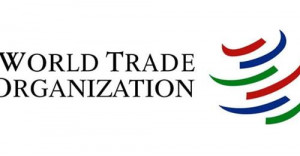Timor-Leste prepares to meet the requirements to be a member of the World Trade Organization (WTO)

The Government of Timor-Leste, through the negotiation team led by the Coordinating Minister for Economic Affairs (MCAE – Portuguese acronym), Joaquim Amaral, is preparing to participate in the second High Level Negotiation meeting of the WTO Working Group, to be held in June 2021.
On October 1st, 2020, Timor-Leste participated in the first High Level Negotiation meeting held by the Working Group established on September 7th, 2016. The Timor-Leste’s working team, which has already elaborated and prepared the documents for Timor-Leste's accession to the WTO, received a very positive assessment from the WTO members, and the WTO secretariat itself, in Geneva.
Given the seriousness of the Government of Timor-Leste in this WTO accession process, the organization's secretariat in Geneva continues to ask for Timor-Leste's availability to share its experiences on how it can successfully organize the Working Group meeting. This good impression is also a result of the comparison with Somalia, which initiated the plan for the first meeting of the Working Group in December 2016, but, so far, has not yet carried out. Thus, the WTO Secretariat intends to hear directly the experiences of Timor-Leste, for this second meeting of the Working Group.
According to the publication WTO Accessions News Letter, edition 104 - March 2021, the Working Group on Timor-Leste's accession to the WTO is currently finalizing the negotiation phase for all contributions, including written responses to questions raised by WTO member countries.
The components of these responses include the initial phase of access to the existing goods and services market, the Legislative Action Plan, a checklist on the accession process, and a questionnaire and support table for the agriculture area.
Timor-Leste’s negotiating team, led by the Coordinating Minister for Economic Affairs (MCAE), will send all information regarding these questions to the WTO secretariat in Geneva, Switzerland, to be the basis for the discussion on the Timor-Leste's external trade regime.
The team, led by the Coordinating Minister for Economic Affairs (MCAE), is composed of representatives of key State institutions, such as the Ministry of Foreign Affairs and Cooperation (MNEC – Portuguese acronym), the Ministry of Tourism, Trade and Industry (MTCI – Portuguese acronym), the Ministry of Petroleum and Minerals (MPM), the Ministry of Agriculture and Fisheries (MAP – Portuguese acronym), the Ministry of Health (MS – Portuguese acronym) and the Ministry of Finance (MF). On the other part, the negotiation team has also held consultations with other relevant entities, so that they can take part in this process, having already had the support of the Ministry of Public Works (MOP – Portuguese acronym), the Ministry of Transports and Communications (MTC), the Central Bank of Timor-Leste (BCTL – Portuguese acronym), as well as the private sector, civil society organizations and development partners.
In addition to continuing negotiations at the multilateral level, the document with the results of the negotiations, which has just been finalized, will also be the basis for Timor-Leste's negotiations with WTO members, at bilateral and plurilateral level.
Included in the preparation for bilateral negotiations, members of the negotiating team have recently completed a virtual training on the services sector, together with members of the observer countries, provided by the WTO Secretariat. The purpose of this training is to facilitate the preparation of the team for negotiations in Services Negotiations that will take place this year.
At the moment, Timor-Leste, together with 22 other countries, are observer countries, with the aim of monitoring all the process related to the requirements to be a member of the WTO, and to be able to join the 164 countries that are already part of the organization. The World Trade Organization (WTO) is an organization that regulates the rules of trade between countries, with the aim of ensuring that trade flows as smoothly, predictably and freely as possible.










































